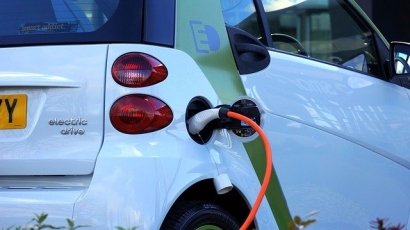
The merits and disadvantages of electric vehicles have been debated for years. However, there’s no denying the impact driving gas-guzzling cars and trucks, whether for personal or professional use, has had on our environment, and the respite a wholesale switch to electric alternatives could offer our planet.
Much of the trouble has been in convincing major industries to adopt an electric outlook. While many are coming round, some are still hesitant. To analyze this situation we’ve put together a list of some of the industries most likely to benefit from a full transition to electric vehicles, whether that is in terms of profit or productivity.
Transport
Transportation has had its fair share of revolutions in recent years.
The advent of apps such as Uber and Lyft have fundamentally transformed the way many people get around large metropolitan areas, while public transport remains a hallmark of societies across the world.
It is unlikely that the introduction of green vehicles would outright reverse these progressions. More likely, eco-friendly cars, trucks, and buses would seek to integrate themselves within these recent app-based revolutions and provide a platform for a greener interpretation of them.
When it comes to public transport, green vehicles require less maintenance than less eco-friendly equivalents, saving local governments money and channeling funds into more public areas. Green vehicles can be the facilitator of a green revolution in towns and cities across the world.
With many cities putting charges on fossil fuel-powered vehicles in metropolitan areas to try and reduce air pollution (a policy affecting both businesses and people in equal measure) you could see more transport companies switching to green vehicles or green public transport options to subvert regulations and stay in operation.
Delivery
Much like transport, the changes to the delivery industry have become integral to our everyday lives.
We are all very familiar with placing an order and hearing that knock at the door the next day. Delivery extends beyond your latest Amazon arrival though, encompassing logistics companies, B2B enterprises, and a number of service industries that have become the lifeblood of many major cities.
Without delivery few of our favorite enterprises can survive. Thankfully, delivery is well-equipped to deal with an electric vehicle revolution (perhaps even leading the line).
Last-mile logistics, in particular, are an increasingly important part of the delivery industry, and one that is directly polluting densely populated areas. Thankfully a number of purpose-built electric vehicles are now being adopted by delivery companies to complete the last leg of parcel drop-offs to customers and businesses. Rather than a challenge, this presents an opportunity for delivery companies to show genuine action in their operations, as a substantial portion of their process is handed over to green solutions.
Delivery businesses are starting to become some of the biggest polluters in the world as the retail economy forms around them. Although there are a number of ways a delivery company can begin to reduce carbon footprint totals over the next couple of years, a more substantial look at the vehicles used may be needed, and may ultimately end up being beneficial to the industry as a whole.
Ecommerce
2020 was a huge year for ecommerce. Online stores reported record business as people across the world were confined to their homes and forced to shop online for their usual goods.
For most consumers, a car is not a typical everyday purchase such as food or household goods. However, it is becoming increasingly common for people to purchase (or at least consider purchasing) their next vehicle online.
The rise of electric vehicles could open an entirely new consumer marketplace, where prospective drivers concerned with their carbon footprint could not just choose a more eco-friendly car, but purchase it in a more efficient manner.
Rather than huge public showrooms and long waiting periods, online shopping could provide eco-minded drivers with an avenue to their new vehicle with a few clicks of a button. Couple this with some of the developing eco-friendly delivery methods touched upon above and we could soon see a huge change in the way consumers purchase their next car, signaling significant business for retailers who invested early in great (and more environmentally friendly) online stores.
Battery manufacturers
Of course, perhaps the biggest benefits of an electric vehicle revolution will be seen in the vehicle manufacturing industry.
More specifically, companies that develop batteries for electric vehicles are set to see a huge upturn in the adoption of these vehicles worldwide.
If the sale of electric vehicles continues at the anticipated rate, then studies suggest a total of $60 billion worth of batteries will need to be produced to cater to this demand. This will signal a substantial shift away from crude oil, allowing the manufacturing industry to reset somewhat.
Battery technology is stronger than ever, with governments across the world offering incentives to manufacturers who can improve battery storage capacity and performance. It’s not far-fetched to suggest that more incentives will be offered as the capabilities and demand for electric vehicles across different sectors increases, especially alongside the continued adoption of smart devices that need longer battery times in everyday life.
The mass production and acceptance of electric vehicles feel like an inevitable step in human history. These are four industries that will both benefit and be interesting to watch throughout this period, as will other sectors such as travel, which will no doubt face major challenges in the next ten years. Keep a watchful eye on their development.
About the author: Rodney Laws is an online entrepreneur who uses his experience to help fellow entrepreneurs start and run their own companies. He is dedicated to supporting businesses by providing expert advice and tips to help them succeed. Visit EcommercePlatforms.io.

